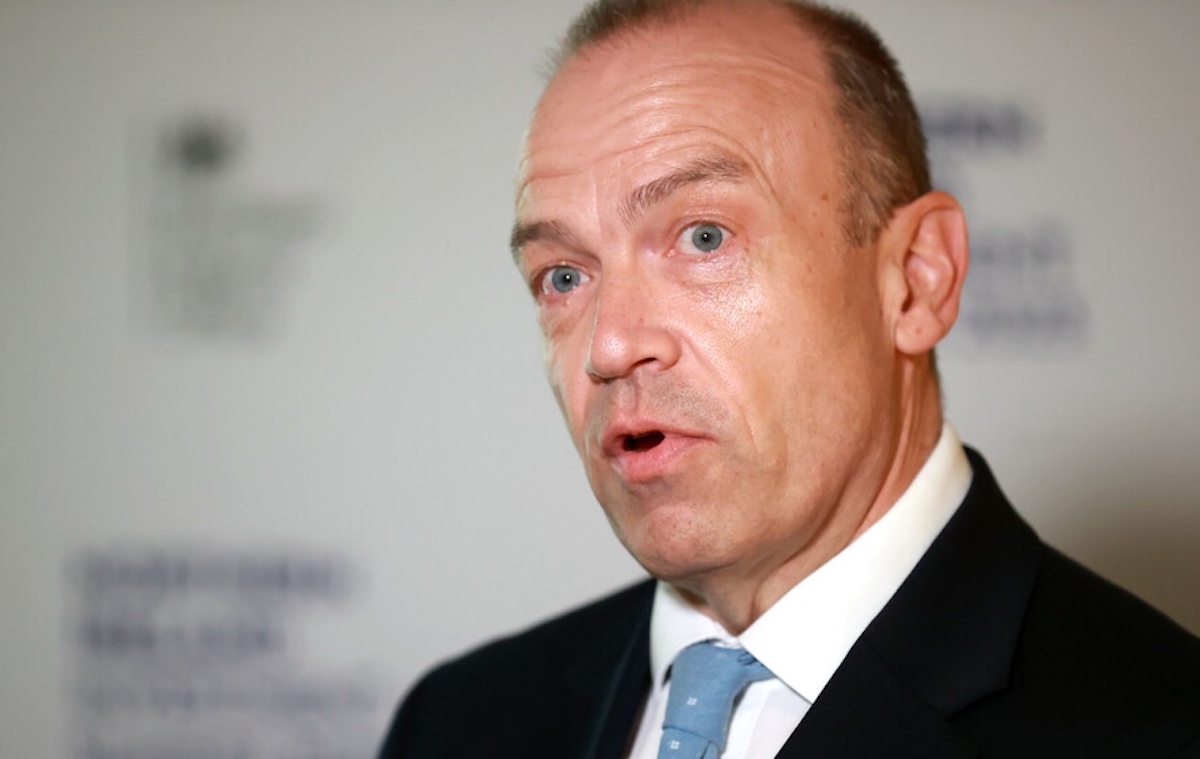
The British government has responded aggressively to an inter-state case brought by the Dublin government to challenge its legislation on the legacy of the past conflict in the European Court of Human Rights.
British Direct Ruler Chris Heaton-Harris has issued a letter formally registering “profound regret” at the inter-state case. He also pointed to the failure of the Dublin government to advance its own conflict-related investigations.
Announcing the inter-state case in December, Taoiseach Leo Varadkar said there was “strong” legal advice that the British legislation, which provides an overarching cover-up of its war crimes in Ireland, breached the UN Convention on Human Rights.
Sinn Féin’s Conor Murphy said he wasn’t surprised that the British government would “fight and criticise others”.
He said the British government’s approach to the legacy of the conflict has “been about satisfying its own electoral interests” and “motivated by its own backbenchers and their desire to protect British crown forces who were involved in all sorts of activities here over the course of the conflict”.
He went on: “The idea that they would continue to fight and criticise others when they are in the face of all opposition from all of the parties here, all of the victims’ organisations and from the Irish government, doesn’t surprise me… They were never intent on satisfying the needs of victims here, they were intent on satisfying the requirements of their own backbenchers in relation to protection of their own personnel.
Heartbroken families who have been fighting for years for truth and justice for their loved ones, have placed their hopes in the case as a last chance of combatting the legislation dubbed the ‘Bill of Shame’.
A County Armagh man whose three brothers were shot dead by the notorious Glenanne Gang almost 50 years ago said he suspects no one will now face court action over the murders, but he still hopes for the truth.
The joint Crown Force/loyalist gang, which is believed to have killed around 120 people, included members of the RUC police, the British Army and UVF paramilitaries.
In September 2021 the Police Ombudsman sent a file on a former RUC for potential prosecution of murders including those of the three Catholic brothers, but without any result.
Hopes are also fading that the long-delayed ‘Operation Kenova’, a supposedly independent police investigation into the Glenanne Gang and other cases, will ever deliver justice.
An anniversary Mass took place in St Malachy’s Church, Whitecross last weekend for the Reavey brothers. Speaking on the anniversary, survivor Eugene Reavey recalled how his brothers were shot dead as they watched television.
“A gang of masked gunmen entered our home and shot all three of them, killing John Martin and Brian and severely wounding the youngest, Anthony, who was just 17,” he said.
“After so many years of inaction by the authorities, our family does not expect to see anyone brought before a court to answer for these crimes, but we strongly believe truth and transparency are the only way towards real reconciliation.”
![[Irish Republican News]](https://republican-news.org/graphics/title_gifs/rn.gif)
![[Irish Republican News]](https://republican-news.org/graphics/title_gifs/harp.gif)

